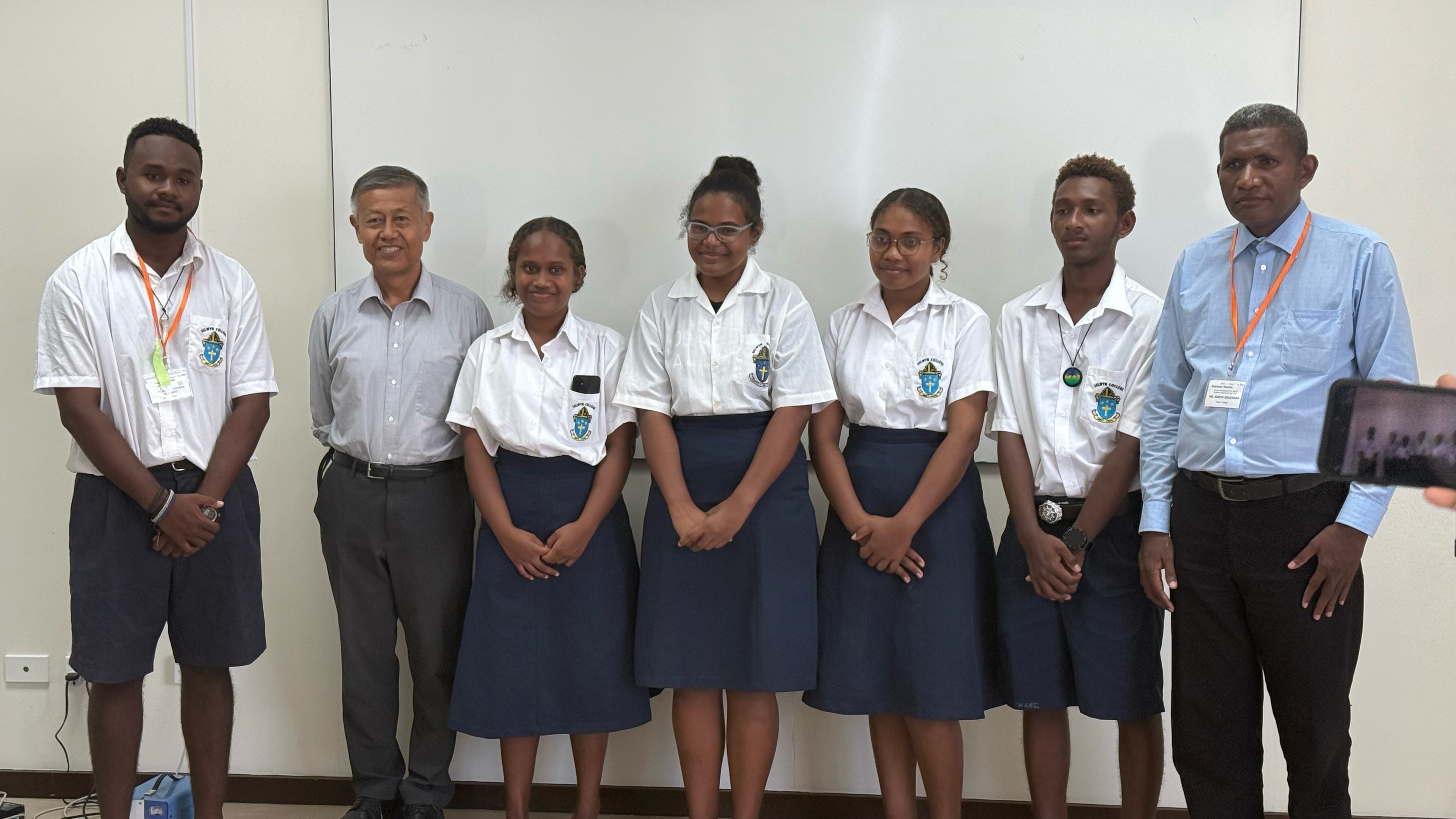
By Ednal Palmer
Five students from Selwyn College today present their reports on their experiences from a week-long High School Summit on World Tsunami Awareness, in Kumamoto, Japan.
Principal of Selwyn College Edwin Rogemana, who led the students to represent the Solomon Islands in the high school annual event, expressed satisfaction with the active involvement and high performance of the students amongst others in Japan.
“Our ambassadors have performed extremely well, in various events including the opening ceremony, unveiling of tree planting, presentations and discussions and site visits,” Rogemana said.
“ I am very pleased with our active participation and would like to assure the Japanese government, embassy and organisers that we are going to implement our minor disaster plans which include planting of trees to help mitigate disaster at the school, developing a master disaster evacuation plan and yearly disaster awareness activities for students,” he added.
Japanese Ambassador to the Solomon Islands Yoshiaki Miwa, who witnessed the presentations, thanked Selwyn College and the students for the great performance.
The High School Students Summit on World Tsunami Awareness Day 2024, was held in Japan’s Kumamoto prefecture in late October and recorded the highest attendance compared to the previous events.
The summit, which is in its 6th edition and was last held in 2022 in Niigata, Japan, is designed to commemorate World Tsunami Awareness Day by encouraging young people to embrace a culture of disaster prevention and empower them to play a central role in enhancing the resilience of their communities as youth leaders and ambassadors.
This year’s Summit succeeded in drawing in more young people from across the globe than ever before, with the participation of 313 students from 78 high schools in Japan and 213 students from more than 40 countries.
In workshops, participating students discussed how to address disaster risks to come up with their action plans.
Similar to past hosts of the summit, Kumamoto Prefecture, has a history of being struck by a variety of natural hazards such as earthquakes, floods, and heavy rain.
Over the two days of the summit, students participated in workshops where they presented their research findings and discussed how to address disaster risks.
The summit concluded with the adoption of the “Kumamoto ‘KIZUNA’ (Bonds) Declaration,” which was drafted by the participating students.
This declaration highlights the important actions they identified during the summit to improve their own capacity for disaster prevention, disaster risk reduction, and disaster recovery.
This summit was made possible through the generous funding of the Government of Japan, which supports United Nations Office for Disaster Risk Reduction (UNDRR) through annual World Tsunami Awareness Day funds.

